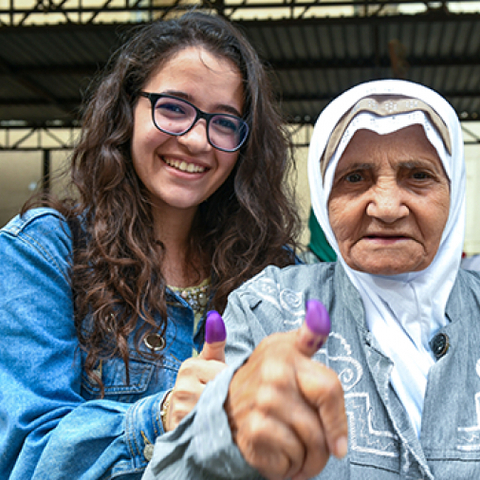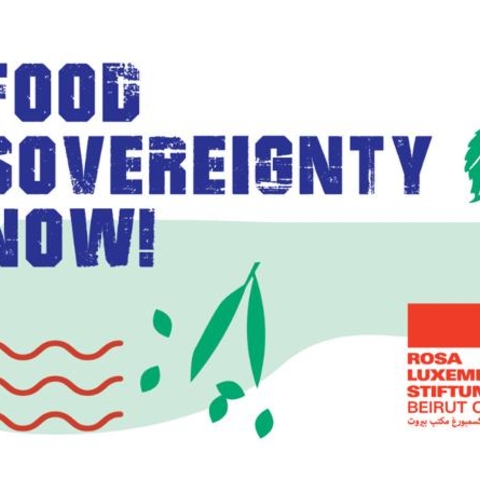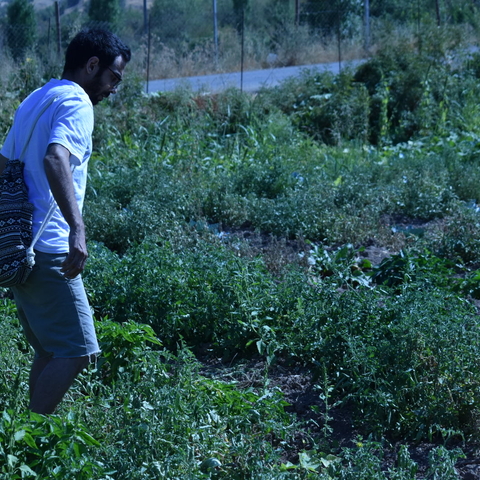“Statelessness: Difficulty of Data Availability and Political Motivation Behind”
Lack of data is a significant challenge in addressing statelessness worldwide. Lebanon is no exception. Lebanon is one of the countries that do not contribute to the yearly global statistics on statelessness by UNHCR. Actually, the country did not conduct a universal census since the first and only census of 1932 following its creation.
Obtaining comprehensive data on statelessness, who and where and how many the stateless are, is important as it enables the State to address statelessness, shape appropriate and pertinent policies, identify profiles, size and needs of stateless persons, and register and document those who live within its borders. Such data is also crucial for researchers who would like to study any aspects of statelessness.
Quantifying statelessness in a country is a shared responsibility. While the State hold the primary duty to identify stateless persons in order to implement their international obligations towards these populations, UNHCR has been tasked under its statelessness mandate, to undertake research on various aspects of statelessness, including on the scope of the problem. Other UN agencies, NGOs and academia also have a role to play in the identification and quantification of situations of statelessness.
However, getting a clear picture of the situation of stateless people in Lebanon is tricky, because the few available information is scattered and incomplete, produced by different actors using different methods and approaches. Moreover, the complexity of the domestic law, the absence of a dedicated statelessness determination procedure, and the protracted statelessness of more than half of the stateless persons pose several barriers for those wishing to navigate the legal, political, administrative, and historical system related to statelessness in Lebanon. Further, measuring statelessness in Lebanon is complicated because stateless persons often live in precarious situations on the margins of society.
Quantifying statelessness in Lebanon encounters several methodological challenges:
Definitional issues: There is no definition of “stateless person” in the Lebanese law. The individuals who should be labeled as stateless are not clearly determined. Should stateless who are under UNRWA mandate or migrant and asylum seekers stateless be counted or not?
Lack of legal framework or determination procedures: Lebanon lack any stateless determination procedures to identify, register and document stateless persons. There is no legal framework for stateless persons and no register for them – except those known as “Qayd Dars” who have a specific register as foreigners of unidentified nationality. As a result, knowing the profiles and size of stateless is difficult, including the Qayd Dars, whose number is not publicly available and not comprehensive.
Gaps in data collection tools: There was no official census since 1932. No public institution has any comprehensive statistics or data on stateless in the country or even stateless beneficiaries. UNHCR in Lebanon does not have data on the stateless in the country, and there are no academic or civil society comprehensive stateless population surveys or mapping exercises.
Unwillingness or lack of awareness to self-identify as stateless: Many stateless persons in Lebanon do not see themselves as being stateless, since they have Lebanese origins or ancestors. In addition, the ‘stateless’ label may be considered counter-productive for these se who consider themselves Lebanese and entitled to greater protection when confirmed nationals. Thus, the few data collection by NGOs or researchers that rely on self-identification may not be entirely accurate.
Inaccessibility to some stateless groups: some institutionalized children are stateless, since the institutions did not perform the administrative or judicial procedures to register them. However, their number is not known. The institutions do not disclose such numbers and do not grant access to their files to researchers or social / legal workers.
Non-digitalization of records and courts: the civil status records, birth registration process, hospitals and midwives archives, courts archives, are not digitalized or centralized. Therefore, collecting data and analyzing it is complicated.
Difficulty to access records and historical data: there is a difficulty to access official records as well as historical data related to the creation of the State. It is similarly difficult accessing the censuses preceding and following the State creation, and the registers related to the exercise of the right to opt for Lebanese or other nationality at the time of creation of the States after the dissolution of the Ottoman Empire in the 1920s.
The lack of data and difficulty to access the available data contributes to perpetuating statelessness and to keeping stateless persons in Lebanon marginalized.
This lack of data is partially due to the insufficient priority given to the implementation of measures to identify statelessness or accurately quantify it, and the State denial of the prevalence of statelessness and thus of its obligations under the international law to reduce this phenomenon and protect stateless persons.
This is coupled with a deliberate strategy to keep real demographic figures hidden for political purposes. Lebanon is composed of multi-religious communities. The political system is built on power sharing of these religious groups based on a delicate fictitious sectarian balance. The majority of the stateless are Sunni Muslims, and they would further the actual demographic imbalance between the two main religions (Islam and Christianity). This was the case of the 1994 naturalization decree that the Maronite League appealed for including a significant majority of Sunnis and as such undermines the demographic balance.
Further, there are fears that any recognition of statelessness and related data would force the State to incorporate Palestinian stateless refugees among other stateless persons who need solutions.
Finally, considering that stateless persons are relatively poor, and uneducated, they do not form an added value to the Lebanese society from State’s point of view. Rather, they have serious socio-economic and protection needs that the State should consider and is trying to evade.



